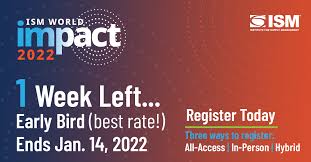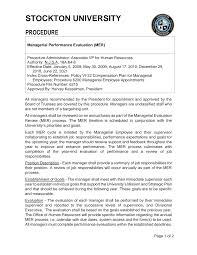
Clark Construction is one the country's most respected general contractors. As such, interns can expect a lot from the best in the industry. Clark offers associate positions that allow for real-world, hands-on experience in construction. This helps prepare future professionals for careers within the construction industry. You'll have the opportunity to learn from top-notch construction professionals and be part of some of most notable construction projects across the country.
Doing job
Clark Construction interns have the chance to work with some of the most skilled construction professionals in the nation. As a Clark Construction intern, you will get to be part of some of the most important projects in the country and will also have the chance to gain firsthand knowledge about the business. These internships are a great way to give students a hands-on view of construction.

Out of your duties as an intern on the jobsite, you'll also be able work in many corporate areas. Clark is a building company. You will be able learn all about it and how to impact the world. Opportunities exist in Virtual Design & Construction, Research & Development, Scheduling, Safety, Sustainability, Talent Management, and Scheduling.
Salary
Clark Construction Group's salaries are competitive. They rank in the top 15 percent of companies in the US based on compensation and perks. Clark Construction Group offers a great work environment and employees love their jobs. Comparable to other companies, the company has a low turnover and high employee satisfaction. Clark Construction Group offers many additional benefits, including a paid internship.
Clark Construction Group pays an average of $106,341 per a year or $51 an hour. It can vary depending on the position, education level, or department. Director of Operations makes the most, earning $331,673 annually. The lowest-paid job is Admin Assistant, who earns $50,345 per annum. Salary ranges are also listed by department, with salaries for the Director of HR and Marketing department averaging $112,811 and $88,113 respectively.
Location
If you're looking for an internship location near you, consider a position with Clark Construction. Clark Construction is consistently ranked among the top general contractors in the country. Clark is a top-rated construction company that builds some of America's most notable projects. This internship allows you to get a more realistic look at construction and gives you valuable, hands-on experience.

Clark Construction Group employees enjoy working. 86% reported that their job is enjoyable. In addition, only 20% of Clark Construction Group employees work less than eight hours a day. Clark Construction Group ranks third for overall company culture. Its employees generally enjoy their work and are satisfied with their benefits.
FAQ
How can we make our company culture successful?
Successful company culture is one where people feel valued and respected.
It is founded on three basic principles:
-
Everybody can contribute something valuable
-
People are treated with respect
-
People and groups should respect each other.
These values are reflected in the way people behave. They will treat others with consideration and courtesy.
They will be respectful of the opinions of other people.
These people will inspire others to share thoughts and feelings.
A company culture encourages collaboration and communication.
People can freely express their opinions without fear or reprisal.
They are aware that mistakes can be accepted if they are treated honestly.
Finally, the company culture encourages honesty as well as integrity.
Everybody knows they have to tell the truth.
Everyone recognizes that rules and regulations are important to follow.
People don't expect special treatment or favors.
How does a manager learn to manage?
Good management skills are essential for success.
Managers must monitor the performance of subordinates constantly.
It is important to take immediate action if your subordinate doesn't perform as expected.
You should be able to identify what needs improvement and how to improve things.
How to manage employees effectively?
Managing employees effectively means ensuring that they are happy and productive.
This also involves setting clear expectations and monitoring their performance.
Managers must set clear goals for their employees and themselves to achieve this goal.
They should communicate clearly with employees. They also need to make sure that they discipline and reward the best performers.
They will also need to keep records about their team's activities. These include:
-
What was the result?
-
How much work was put in?
-
Who did it, anyway?
-
What was the moment it was completed?
-
Why did it happen?
This information is useful for monitoring performance and evaluating the results.
What are the five management process?
Each business has five stages: planning, execution and monitoring.
Planning involves setting goals for the future. Planning involves defining your goals and how to get there.
Execution happens when you actually do the plan. These plans must be adhered to by everyone.
Monitoring is checking on progress towards achieving your objectives. Regular reviews of performance against budgets and targets should be part of this process.
Reviews take place at the end of each year. They provide an opportunity to assess whether everything went well during the year. If not, then it may be possible to make adjustments in order to improve performance next time.
Following the annual review, evaluation is done. It helps identify which aspects worked well and which didn't. It provides feedback about how people perform.
What are some common management mistakes?
Managers can make their jobs more difficult than necessary.
They may not be able to delegate enough responsibility to staff or provide adequate support.
A majority of managers lack the communication skills needed to motivate their team and lead them.
Some managers create unrealistic expectations for their teams.
Managers may attempt to solve all problems themselves, rather than delegating it to others.
Statistics
- The profession is expected to grow 7% by 2028, a bit faster than the national average. (wgu.edu)
- UpCounsel accepts only the top 5 percent of lawyers on its site. (upcounsel.com)
- Hire the top business lawyers and save up to 60% on legal fees (upcounsel.com)
- Your choice in Step 5 may very likely be the same or similar to the alternative you placed at the top of your list at the end of Step 4. (umassd.edu)
- Our program is 100% engineered for your success. (online.uc.edu)
External Links
How To
How can you implement a Quality Management Plan?
The Quality Management Plan (QMP) was established in ISO 9001. It is a systematic way to improve processes, products and services. It emphasizes on how to continuously measure, analyze, control, and improve processes, product/service, and customer satisfaction.
The QMP is a standard method used to ensure good business performance. QMP is a standard method that improves the production process, service delivery, customer relationship, and overall business performance. A QMP should include all three aspects - Processes, Products, and Services. When the QMP includes only one aspect, it is called a "Process" QMP. If the QMP is focused on a product/service, it's called a QMP. QMP is also used to refer to QMPs that focus on customer relations.
When implementing a QMP, there are two main elements: Scope and Strategy. These are the following:
Scope: This is the scope of the QMP and its duration. For example, if your organization wants to implement a QMP for six months, this scope will define the activities performed during the first six months.
Strategy: This describes how you will achieve the goals in your scope.
A typical QMP consists of 5 phases: Planning, Design, Development, Implementation, and Maintenance. Here are the details for each phase.
Planning: In this stage the QMP's objectives and priorities are established. To understand the expectations and requirements of all stakeholders, the project is consulted. Next, you will need to identify the objectives and priorities. The strategy for achieving them is developed.
Design: During this stage, the design team develops the vision, mission, strategies, and tactics required for the successful implementation of the QMP. These strategies are executed by creating detailed plans.
Development: This is where the development team works to build the capabilities and resources necessary for the successful implementation of the QMP.
Implementation: This refers to the actual implementation or the use of the strategies planned.
Maintenance: Maintaining the QMP over time is an ongoing effort.
Additionally, the QMP should include additional items:
Stakeholder Involvement: Stakeholders are important for the success of the QMP. They must be involved in all phases of the QMP's development, planning, execution, maintenance, and design.
Project Initiation: The initiation of any project requires a clear understanding of the problem statement and the solution. Also, the initiator should understand why they are doing it and what they expect.
Time Frame: The time frame of the QMP is very critical. If you plan to implement the QMP for a short period, you can start with a simple version. You may need to upgrade if you plan on implementing the QMP for a long time.
Cost Estimation is another important aspect of the QMP. It is impossible to plan without knowing what you will spend. Cost estimation is crucial before you begin the QMP.
QMPs should not be considered a static document. It can change as the company grows or changes. So, it should be reviewed periodically to make sure that it still meets the needs of the organization.